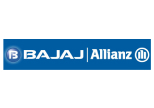Understanding The Differences Between FD And RD
Table of Contents
Fixed deposits and recurring deposits are two of the most popular investment alternatives in India, especially among risk-averse people. The fundamental benefit of making an investment in a fixed deposit or recurring deposit plan is that the returns are guaranteed and there are no risks involved. Many people are unclear if they should put their money into an RD or an FD.Both the RD and the FD, which are fixed-income instruments, are available from all major banks and financial organisations. You can put a set amount of money into either programme and get a fixed interest rate on it. At the end of the term, both the capital and the interest will be returned to investors.
Fixed Deposits and Recurring Deposits: What's the Difference?
The following is a list of the differences between Fixed Deposits and Recurring Deposits:
1. Invested Amount
Any bank or financial organisation can provide a Fixed Deposit to a consumer who wants to make a one-time investment.
Recurring Deposits are available to everyone who can afford to invest a small amount of money every month in any bank or financial organisation.
2. Renewable Subscriptions
You can reinvest the principal amount with or without interest for a new period to renew your fixed deposit.
There is no such option. The lump sum plus interest is deposited into your savings account.
3. Tenure
The duration of stay ranges from seven days to ten years. It is up to the person to decide how long they will work. From six months to 10 years, the duration varies. Individuals must choose the length of time they will work.
4. Withdrawal
You can withdraw a portion of your fixed deposit while the remaining balance receives interest. A recurring deposit cannot be partially withdrawn. However, you are free to leave either one early.
5. Obtaining Funds
Loans can be obtained via Fixed Deposits. The loan amount is flexible, up to 90% of the value of the Fixed Deposit.
A loan option is also offered for Recurring Deposits. Up to 90% of the entire amount can be deposited.
6. Individual Income Tax Rates
With one difference, FD and RD are essentially equivalent in terms of taxability. Both of these investment options generate interest, which is added to your total income and taxed at your marginal rate. If you're in the 30% tax bracket, whatever interest you earn on your FD or RD is taxed at 30%.
7. The Default Clause
Because it is done only once at the beginning with a lump sum payment, a person cannot fail on payment.
If a person fails to pay payments for six months in a row, the bank has the power to cancel such Recurring Deposit accounts.
Bottomline
Both FD and RD are solid investment options that ensure a return on your initial investment. People with a big sum of money to invest and who seek monthly or quarterly cash flow should consider FDs. RDs are suitable for customers who prefer to make tiny monthly payments and are willing to wait a long period for their money to be returned.
Do read - How To Find the Best Life Insurance Company In 2022?
Top 3 Life Insurance Companies In India
Disclaimer: This article is issued in the general public interest and meant for general information purposes only. Readers are advised not to rely on the contents of the article as conclusive in nature and should research further or consult an expert in this regard.









































